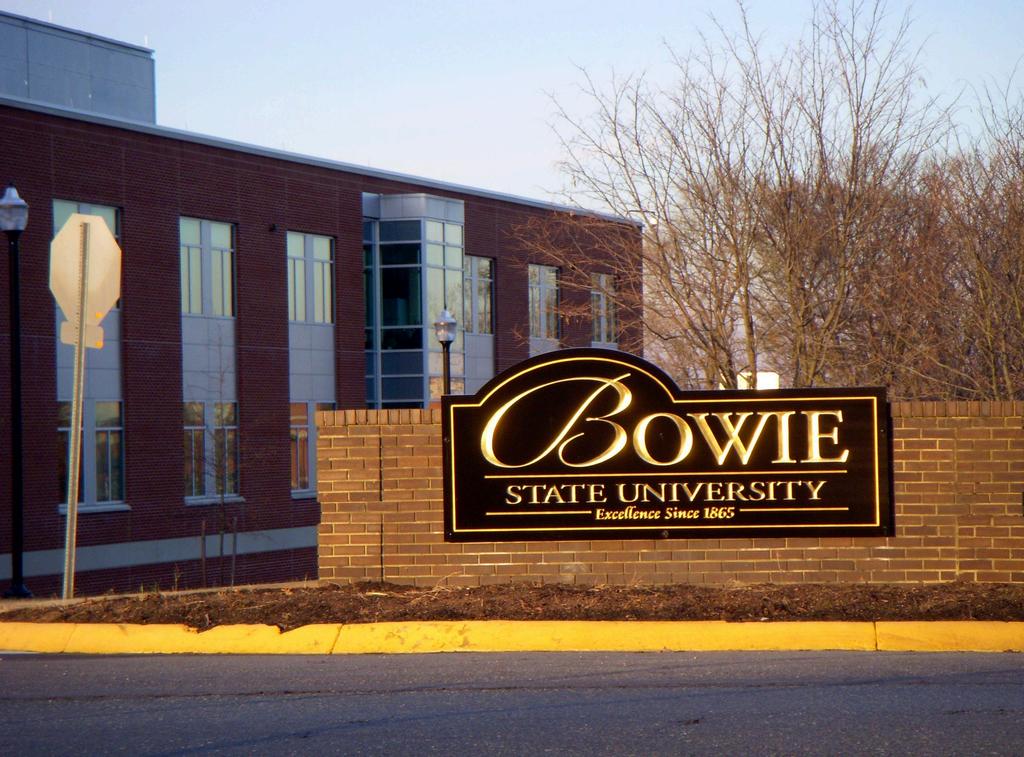






Introduction



This initiative aims to foster a strategic partnership between Bowie State University and the State of Maryland’s Procurement Office The goal is to provide resources and support that empower local businesses, students, and alumni to engage effectively with the State’s procurement processes. By assembling a team of skilled students and creating educational programs and events, we will help entrepreneurs navigate the complexities of certification and connect them to valuable business opportunities.

U S federal and state procurement systems are critical for supporting economic development by awarding contracts to businesses for goods and services. The federal procurement system alone awards over $600 billion annually in contracts to businesses of various sizes, with a particular emphasis on promoting small businesses through the Small Business Administration (SBA).
State-level procurement, while on a smaller scale, also plays a significant role in local economies by offering contract opportunities to small and minority-owned businesses To increase inclusivity, several programs, such as the 8(a) Business Development Program at the federal level and state-specific initiatives like Maryland’s Minority Business Enterprise (MBE) program, aim to support disadvantaged businesses, including those owned by racial minorities.
Despite these efforts, research consistently highlights significant racial disparities in the allocation of government contracts. Studies by the SBA and independent researchers have found that Black, Latino, and other minority-owned businesses remain disproportionately underrepresented in federal and state contract awards.
For instance, an analysis by the Minority Business Development Agency (MBDA) shows that Black-owned businesses receive less than 2% of federal contracts, even though they represent approximately 10% of U.S. businesses. Similar trends are observed in state procurement systems, with minority-owned businesses facing challenges in accessing contracts compared to their white-owned counterparts.

Several factors contribute to the racial disparities in procurement awards:
1. Access to Information and Networks
Minority business owners often lack the same access to networks and information as their white counterparts, which can limit their opportunities to learn about and compete for government contracts. Research by Boston and Ross (2020) found that minority-owned businesses are less likely to be connected with key stakeholders in procurement processes, which often leads to fewer opportunities to bid for contracts.
2. Discrimination and Bias Studieshaveshownthatimplicitandexplicitracial biascanaffecttheevaluationofminority-owned businessesduringtheprocurementprocess ResearchbyBlountetal.(2016)highlightedthat Black-ownedfirms,evenwhenofferingcompetitive bids,werelesslikelytoreceivecontractscompared towhite-ownedfirmsduetobiasedperceptionsof businesscompetenceandquality.
3. Lack of Capital and Resources
Minority-owned businesses often face financial constraints, making it harder to meet the requirements of government contracts. A report by Bates (2021) revealed that minority businesses are more likely to face barriers in securing capital, which limits their ability to scale and meet the demands of large procurement contracts.
4. Complex Certification Processes
The certification process for minority business enterprises (MBE) and other governmentrecognized small business categories can be complex and time-consuming. Many minorityowned businesses face administrative challenges in navigating these processes, which limits their ability to qualify for set-aside programs.

In response to these disparities, there have been initiatives at both the federal and state levels aimed at increasing minority business participation in procurement
Programs like the U.S. Department of Transportation’s Disadvantaged Business Enterprise (DBE) and state-level programs such as Maryland’s MBE program are designed to increase the participation of underrepresented groups in government contracts. However, research suggests that these programs need more robust oversight, increased transparency, and targeted outreach to ensure that they are effectively reducing the racial disparities in contract awards.
While federal and state procurement systems are key drivers of economic opportunity, significant racial disparities persist in contract awards for minorityowned businesses Barriers such as access to information, discrimination, and financial constraints continue to disproportionately affect Black, Latino, and other minority entrepreneurs.
Addressing these disparities requires a concerted effort to enhance the inclusivity of t d th t i it b i th i

Buildingamoreinclusiveanddynamicbusiness environmentinMarylandrequiresprovidingtargeted supportforbusinessesseekingcertificationand fosteringconnectionswithkeystakeholders.The objectivesoutlinedinthenextpagesfocuson strategicactivitiesaimedataddressingbarriersto participation,groundedinresearchandinformedby thespecificneedsoflocalminorityownedbusinesses.

1. Assemble a team of paid students to:
Research and identify potential stakeholders and partners, including agencies and groups that provide certification education, resources, and services.
Consult with business owners to collect and synthesize data for business plans, pitches, and procurement processes.
Organize and facilitate focus groups with local business owners to gain qualitative insights into their specific challenges and needs related to certification, procurement processes, and networking. The student team will analyze and synthesize this feedback to inform the development of tailored resources, workshops, and the certification starter kit.


Create a step-by-step roadmap for pre-business owners seeking to incorporate and obtain business certifications.
Provide clear and concise infographics and fact sheets designed to demystify the certification process and guide business owners in connecting with Prime contractors.
Help existing businesses scale by offering resources and strategies for growth, including expanding market reach, increasing operational capacity, and leveraging state procurement opportunities.
Help businesses develop exit strategies by including guidance on succession planning, selling, or closing a business, ensuring long-term sustainability and growth.
Launch a portal where tailored content and guidance are provided based on the specific needs and stages of each business. Access to the portal will be granted only to participants who complete the required workshops (see objective 5 for more details).
3. Identify and recommend stakeholders and partners:
Engage stakeholders who can provide free workshops, services, and tailored programs in alignment with the roadmap.
Ensure one-on-one consultations for businesses that require personalized guidance.
4. Host a monthly “First-Touch” Information Session:
Collaborate with the State to create and host recurring sessions that educate business owners and aspiring entrepreneurs on how to do business with the State of Maryland.

Highlight the certification process, business opportunities, and procurement requirements.

5 Conduct capacity-building workshops:
Successful Networking: Develop and host practical workshops to teach small business owners how to network effectively with Prime contractors. Data-Driven Decision-Making: Offer workshops that teach business owners how to leverage data in decisionmaking. This can include sessions on how to use procurement data, competitor analysis, and internal metrics to refine business strategies.
6. Host quarterly “Meet the Primes” networking events:
Organize structured, invitation-only events for individuals who have completed networking training. Facilitate direct engagement between certified small business owners and Prime contractors. Profiles of each small business and Prime contractor will be made available for review prior to networking events. One-on-one meetings will be pre-scheduled to ensure a seamless process and equitable distribution of time with key connections.

Nestled between the nation’s capital, Washington, DC and a major metropolitan city, Baltimore, MD, Bowie State University, the oldest historically black college/university in the State of Maryland and one of the oldest in the country, offers a beautiful, serene campus with fresh outdoor spaces and state of the art venues to accommodate all event needs.
The Conference & Event Services staff provide quality services for a large variety of events such as: Banquets, Retreats, Summer Camps, School and Job Fairs, Recitals, Conferences, Workshops, Lectures Seminars, etc.
As a vital institution committed to fostering economic empowerment and equity, BSU is uniquely positioned to host the events and workshops outlined in this proposal. With strong ties to the local community, extensive resources, and a proven track record of supporting small businesses and minority entrepreneurs, BSU provides the perfect environment to facilitate meaningful engagement and capacity building Its mission to drive innovation and inclusive growth aligns seamlessly with the goals of this initiative, making it an ideal hub for these efforts.
This project aims to foster a partnership with the State of Maryland’s Procurement Office to empower small and minority-owned businesses to engage effectively in state procurement processes. BSU’s Center for Data Analytics will serve as lead for the overall project, while partnering with the Entrepreneur Innovation Center to provide specialized support. This partnership will support the development of resources, training workshops, and networking events designed to help local businesses navigate certification and connect with key stakeholders


The Center for Data Analytics (CDA) is Bowie State University’s leading data-driven hub for faculty, students, academic departments and entrepreneurs. We provide robust research support, foster a strong community of collaboration, and offer data learning opportunities to both the campus and the public With access to individuals highly skilled in statistical methods, data analysis, and business intelligence, the CDA is uniquely equipped to support investigative efforts from both a consulting and applied research perspective.
Our seminars and workshops help aspiring data analytics scholars refine their research skills and career trajectories through practical training in tools such as SQL, Python, Power BI, and Data Visualization. By offering these valuable insights and resources, we prepare students to excel in data-centric careers.
Additionally, the CDA maintains strong relationships with local small businesses through funded partnerships and research initiatives, positioning us as a trusted partner in the community. These established connections enable us to support small businesses in addressing their challenges and seizing opportunities within the state’s procurement system
The CDA is perfectly positioned to lead this initiative in partnership with the Entrepreneur Innovation Center, combining our expertise in data-driven research and analytics with the center's deep understanding of business development and entrepreneurial growth
Together, we provide a comprehensive framework to support small businesses, connect them with key stakeholders, and empower them to navigate the state’s procurement process successfully.

The Entrepreneur Innovation Center (EIC) at Bowie State University offers tech-infused classrooms, a makerspace, and incubators for business development. This collaborative space provides students, faculty, alumni, and business owners with the tools to cultivate an entrepreneurial mindset, develop prototypes, and turn ideas into actionable ventures At the EIC, students engage in hands-on learning experiences, such as the Bulldog Pitch Competition, where they can pitch their business ideas for a chance to win cash prizes, helping them refine their entrepreneurial skills.
The EIC fosters a dynamic environment through events like open mics, popup shops, summer programs, guest lectures, workshops, and networking opportunities throughout the year These activities equip students and business owners with the resources, support, and connections necessary to thrive in today’s competitive marketplace.
Wewanttomakea positiveimpacton theworldof business
The EIC’s dedication to innovation, entrepreneurship, and community engagement makes it the perfect partner to lead this initiative alongside the CDA With the CDA’s expertise in data analytics and research, coupled with the EIC’s focus on business development and entrepreneurial growth, this partnership creates a comprehensive framework to empower local businesses Together, they are uniquely equipped to support businesses in navigating Maryland’s procurement process, providing the resources and guidance needed for long-term success.

Entrepreneurship Innovation Center in 2022 was awarded a multi-year Minority Business Development Agency (MBDA) grant, Building Businesses @ BSU, to educate undergraduate students at Bowie State University in business plan development
Accomplishments from this grant:
42 students have completed business plans
EIC at Bowie State University received “MBDA Spot-Light Award for our Building Businesses @ BSU program.
The Entrepreneurship Innovation Center has led the HBCU community in pitch competitions. It has guided several university and community champions in developing their pitch competitions, including Morgan State University and the Tom Joyner Foundation.
The Entrepreneurship Innovation Center at Bowie State is now in the 4th year of hosting the annual HBCU+ Entrepreneurship Conference, with a target audience, faculty, students, and community participation Sponsors for the event include TEDCO, Venture Well, Adobe, etc
Fast Facts – EIC
85 workshops help during the 2023-2024 academic year
Including Makerspace workshops
Ask An Entrepreneur monthly series
Entrepreneur-in-Residence program
Onsite community partners
Bowie Innovation Center (BIC)
Maryland Women's Business Center (MWBC)
Maryland Small Bus9enss Development Center (SBDC)

